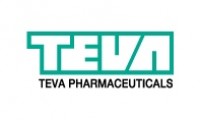-
Low vitamin D may raise risk of kidney failure
- Source: medicalnewstoday
- 1,332
- November 8, 2017
-
Black Death and incurable Marburg Virus now spreading across Africa’s cities
- Source: naturalnews
- 1,850
- November 8, 2017
-
FDA approves first treatment for certain patients with Erdheim-Chester Disease, a rare blood cancer
- Source: Worldpharmanews
- 642
- November 8, 2017
-
Increasing rates of chronic conditions putting more moms, babies at risk
- Source: Medicalxpress
- 651
- November 8, 2017
-
Merck, Pfizer launch Bavencio for rare skin cancer
- Source: Pharmatimes
- 809
- November 7, 2017
-
Moderna Announces New Collaboration with AstraZeneca
- Source: Modernatx
- 690
- November 7, 2017
-
Just two sugary drinks per week may raise type 2 diabetes risk
- Source: medicalnewstoday
- 866
- November 7, 2017
-
Men with low testosterone less likely to have prostate cancer
- Source: medicalnewstoday
- 818
- November 7, 2017
-
Scientists discover potential treatment to stop glaucoma in its tracks
- Source: Medicalxpress
- 826
- November 7, 2017
-
Teva looks to sell generics in China through joint venture with Guangzhou Pharma
- Source: Fiercepharma
- 774
- November 7, 2017
your submission has already been received.
OK
Subscribe
Please enter a valid Email address!
Submit
The most relevant industry news & insight will be sent to you every two weeks.













